-
1 EXECUTIVE SUMMARY
-
Market Attractiveness Analysis
- Global Lactose-Free Dairy Products Market, by Product Type
- Global Lactose-Free Dairy Products Market, by Category
- Global Lactose-Free Dairy Products Market, by Distribution Channel
- Global Lactose-Free Dairy Products Market, by Region
-
MARKET INTRODUCTION
-
Definition
-
Scope of the Study
-
Market Structure
-
Key Buying Criteria
-
Macro Factor Indicator Analysis
-
RESEARCH METHODOLOGY
-
Research Category
-
Primary Research
-
Secondary Research
-
Market Size Estimation
-
Forecast Model
-
List of Assumptions
-
MARKET DYNAMICS
-
Introduction
-
Drivers
-
Restraints
-
Opportunities
-
Challenges
-
MARKET FACTOR ANALYSIS
-
Value Chain Analysis
-
Supply Chain Analysis
-
Porter’s Five Forces Model
- Bargaining Power of Suppliers
- Bargaining Power of Buyers
- Threat of New Entrants
- Threat of Substitutes
- Intensity of Rivalry
-
GLOBAL LACTOSE-FREE DAIRY PRODUCTS MARKET, BY PRODUCT TYPE
-
Introduction
-
Milk
- Milk: Market Estimates & Forecast, by Region/Country, 2020-2027
-
Yogurt
- Yogurt: Market Estimates & Forecast, by Region/Country, 2020-2027
-
Ice Cream
- Ice Cream: Market Estimates & Forecast, by Region/Country, 2020-2027
-
Others
- Others: Market Estimates & Forecast, by Region/Country, 2020-2027
-
GLOBAL LACTOSE-FREE DAIRY PRODUCTS MARKET, BY CATEGORY
-
Introduction
-
Organic
- Organic: Market Estimates & Forecast, by Region/Country, 2020-2027
-
Conventional
- Conventional: Market Estimates & Forecast, by Region/Country, 2020-2027
-
GLOBAL LACTOSE-FREE DAIRY PRODUCTS MARKET, BY DISTRIBUTION CHANNEL
-
Introduction
-
Store Based
- SuperMarket & HyperMarket
- Convenience Stores
- Others
-
Non-Store Based
- Non-Store Based: Market Estimates & Forecast, by Region/Country, 2020-2027
-
GLOBAL LACTOSE-FREE DAIRY PRODUCTS MARKET, BY REGION
-
Introduction
-
North America
- Market Estimates & Forecast, by Product Type, 2020-2027
- Market Estimates & Forecast, by Category, 2020-2027
- Market Estimates & Forecast, by Distribution Channel, 2020-2027
- Market Estimates & Forecast, by Country, 2020-2027
- US
- Canada
- Mexico
-
Europe
- Market Estimates & Forecast, by Product Type, 2020-2027
- Market Estimates & Forecast, by Category, 2020-2027
- Market Estimates & Forecast, by Distribution Channel, 2020-2027
- Market Estimates & Forecast, by Country, 2020-2027
- Germany
- UK
- France
- Spain
- Italy
- Rest of Europe
-
Asia-Pacific
- Market Estimates & Forecast, by Product Type, 2020-2027
- Market Estimates & Forecast, by Category, 2020-2027
- Market Estimates & Forecast, by Distribution Channel, 2020-2027
- Market Estimates & Forecast, by Country, 2020-2027
- China
- Japan
- India
- Australia & New Zealand
- Rest of Asia-Pacific
-
Rest of the World
- Market Estimates & Forecast, by Product Type, 2020-2027
- Market Estimates & Forecast, by Category, 2020-2027
- Market Estimates & Forecast, by Distribution Channel, 2020-2027
- Market Estimates & Forecast, by Region, 2020-2027
- South America
- Middle East
- Africa
-
COMPETITIVE LANDSCAPE
-
Introduction
-
Competitive Benchmarking
-
Development Share Analysis
-
Key Developments & Growth Strategies
-
COMPANY PROFILES
-
Green Valley Creamery
- Company Overview
- Financial Overview
- Products Offered
- Key Developments
- SWOT Analysis
- Key Strategies
-
McNeil Nutritionals, LLC
- Company Overview
- Financial Overview
- Products Offered
- Key Developments
- SWOT Analysis
- Key Strategies
-
Valio International
- Company Overview
- Financial Overview
- Products Offered
- Key Developments
- SWOT Analysis
- Key Strategies
-
Alpro
- Company Overview
- Financial Overview
- Products Offered
- Key Developments
- SWOT Analysis
- Key Strategies
-
Arla Foods amba
- Company Overview
- Financial Overview
- Products Offered
- Key Developments
- SWOT Analysis
- Key Strategies
-
Cabot Creamery Cooperative
- Company Overview
- Financial Overview
- Products Offered
- Key Developments
- SWOT Analysis
- Key Strategies
-
Saputo Dairy Products
- Company Overview
- Financial Overview
- Products Offered
- Key Developments
- SWOT Analysis
- Key Strategies
-
The Danone Company Inc.
- Company Overview
- Financial Overview
- Products Offered
- Key Developments
- SWOT Analysis
- Key Strategies
-
Dean Foods
- Company Overview
- Financial Overview
- Products Offered
- Key Developments
- SWOT Analysis
- Key Strategies
-
Smith Dairy Products Co.
- Company Overview
- Financial Overview
- Products Offered
- Key Developments
- SWOT Analysis
- Key Strategies
-
Granarolo Group
- Company Overview
- Financial Overview
- Products Offered
- Key Developments
- SWOT Analysis
- Key Strategies
-
Hiland Dairy
- Company Overview
- Financial Overview
- Products Offered
- Key Developments
- SWOT Analysis
- Key Strategies
-
Nestle S.A.
- Company Overview
- Financial Overview
- Products Offered
- Key Developments
- SWOT Analysis
- Key Strategies
-
General Mills Inc.
- Company Overview
- Financial Overview
- Products Offered
- Key Developments
- SWOT Analysis
- Key Strategies
-
Mondelez International
- Company Overview
- Financial Overview
- Products Offered
- Key Developments
- SWOT Analysis
- Key Strategies
-
APPENDIX
-
General Product Types & References
-
List of Abbreviation
-
-
List of Tables
-
Global Lactose-Free Dairy Products Market, by Region, 2023–2030 (USD Million)
-
Global Lactose-Free Dairy Products Market, by Product Type, 2023–2030 (USD Million)
-
Global Lactose-Free Dairy Products Market, by Category, 2023–2030 (USD Million)
-
Global Lactose-Free Dairy Products Market, by Distribution Channel, 2023–2030 (USD Million)
-
North America: Lactose-Free Dairy Products Market, by Country, 2023–2030 (USD Million)
-
North America: Lactose-Free Dairy Products Market, by Product Type, 2023–2030 (USD Million)
-
North America: Lactose-Free Dairy Products Market, by Category, 2023–2030 (USD Million)
-
North America: Lactose-Free Dairy Products Market, by Distribution Channel, 2023–2030 (USD Million)
-
US: Lactose-Free Dairy Products Market, by Product Type, 2023–2030 (USD Million)
-
US: Lactose-Free Dairy Products Market, by Category, 2023–2030 (USD Million)
-
US: Lactose-Free Dairy Products Market, by Distribution Channel, 2023–2030 (USD Million)
-
Canada: Lactose-Free Dairy Products Market, by Product Type, 2023–2030 (USD Million)
-
Canada: Lactose-Free Dairy Products Market, by Category, 2023–2030 (USD Million)
-
Canada: Lactose-Free Dairy Products Market, by Distribution Channel, 2023–2030 (USD Million)
-
Mexico: Lactose-Free Dairy Products Market, by Product Type, 2023–2030 (USD Million)
-
Mexico: Lactose-Free Dairy Products Market, by Category, 2023–2030 (USD Million)
-
Mexico: Lactose-Free Dairy Products Market, by Distribution Channel, 2023–2030 (USD Million)
-
Europe: Lactose-Free Dairy Products Market, by Country, 2023–2030 (USD Million)
-
Europe: Lactose-Free Dairy Products Market, by Product Type, 2023–2030 (USD Million)
-
Europe: Lactose-Free Dairy Products Market, by Category, 2023–2030 (USD Million)
-
Europe: Lactose-Free Dairy Products Market, by Distribution Channel, 2023–2030 (USD Million)
-
Germany: Lactose-Free Dairy Products Market, by Product Type, 2023–2030 (USD Million)
-
Germany: Lactose-Free Dairy Products Market, by Category, 2023–2030 (USD Million)
-
Germany: Lactose-Free Dairy Products Market, by Distribution Channel, 2023–2030 (USD Million)
-
France: Lactose-Free Dairy Products Market, by Product Type, 2023–2030 (USD Million)
-
France: Lactose-Free Dairy Products Market, by Category, 2023–2030 (USD Million)
-
France: Lactose-Free Dairy Products Market, by Distribution Channel, 2023–2030 (USD Million)
-
Italy: Lactose-Free Dairy Products Market, by Product Type, 2023–2030 (USD Million)
-
Italy: Lactose-Free Dairy Products Market, by Category, 2023–2030 (USD Million)
-
Italy: Lactose-Free Dairy Products Market, by Distribution Channel, 2023–2030 (USD Million)
-
Spain: Lactose-Free Dairy Products Market, by Product Type, 2023–2030 (USD Million)
-
Spain: Lactose-Free Dairy Products Market, by Category, 2023–2030 (USD Million)
-
Spain: Lactose-Free Dairy Products Market, by Distribution Channel, 2023–2030 (USD Million)
-
UK: Lactose-Free Dairy Products Market, by Product Type, 2023–2030 (USD Million)
-
UK: Lactose-Free Dairy Products Market, by Category, 2023–2030 (USD Million)
-
UK: Lactose-Free Dairy Products Market, by Distribution Channel, 2023–2030 (USD Million)
-
Rest of Europe: Lactose-Free Dairy Products Market, by Product Type, 2023–2030 (USD Million)
-
Rest of Europe: Lactose-Free Dairy Products Market, by Category, 2023–2030 (USD Million)
-
Rest of Europe: Lactose-Free Dairy Products Market, by Distribution Channel, 2023–2030 (USD Million)
-
Asia-Pacific: Lactose-Free Dairy Products Market, by Country, 2023–2030 (USD Million)
-
Asia-Pacific: Lactose-Free Dairy Products Market, by Product Type, 2023–2030 (USD Million)
-
Asia-Pacific: Lactose-Free Dairy Products Market, by Category, 2023–2030 (USD Million)
-
Asia-Pacific: Lactose-Free Dairy Products Market, by Distribution Channel, 2023–2030 (USD Million)
-
China: Lactose-Free Dairy Products Market, by Product Type, 2023–2030 (USD Million)
-
China: Lactose-Free Dairy Products Market, by Category, 2023–2030 (USD Million)
-
China: Lactose-Free Dairy Products Market, by Distribution Channel, 2023–2030 (USD Million)
-
India: Lactose-Free Dairy Products Market, by Product Type, 2023–2030 (USD Million)
-
India: Lactose-Free Dairy Products Market, by Category, 2023–2030 (USD Million)
-
India: Lactose-Free Dairy Products Market, by Distribution Channel, 2023–2030 (USD Million)
-
Japan: Lactose-Free Dairy Products Market, by Product Type, 2023–2030 (USD Million)
-
Japan: Lactose-Free Dairy Products Market, by Category, 2023–2030 (USD Million)
-
Japan: Lactose-Free Dairy Products Market, by Distribution Channel, 2023–2030 (USD Million)
-
Rest of Asia-Pacific: Lactose-Free Dairy Products Market, by Product Type, 2023–2030 (USD Million)
-
Rest of Asia-Pacific: Lactose-Free Dairy Products Market, by Category, 2023–2030 (USD Million)
-
Rest of Asia-Pacific: Lactose-Free Dairy Products Market, by Distribution Channel, 2023–2030 (USD Million)
-
Rest of the World (RoW): Lactose-Free Dairy Products Market, by Country, 2023–2030 (USD Million)
-
Rest of the World (RoW): Lactose-Free Dairy Products Market, by Product Type, 2023–2030 (USD Million)
-
Rest of the World (RoW): Lactose-Free Dairy Products Market, by Category, 2023–2030 (USD Million)
-
Rest of the World (RoW): Lactose-Free Dairy Products Market, by Distribution Channel, 2023–2030 (USD Million)
-
South America: Lactose-Free Dairy Products Market, by Product Type, 2023–2030 (USD Million)
-
South America: Lactose-Free Dairy Products Market, by Category, 2023–2030 (USD Million)
-
South America: Lactose-Free Dairy Products Market, by Distribution Channel, 2023–2030 (USD Million)
-
Middle East: Lactose-Free Dairy Products Market, by Product Type, 2023–2030 (USD Million)
-
Middle East: Lactose-Free Dairy Products Market, by Category, 2023–2030 (USD Million)
-
Middle East: Lactose-Free Dairy Products Market, by Distribution Channel, 2023–2030 (USD Million)
-
Africa: Lactose-Free Dairy Products Market, by Product Type, 2023–2030 (USD Million)
-
Africa: Lactose-Free Dairy Products Market, by Category, 2023–2030 (USD Million)
-
Africa: Lactose-Free Dairy Products Market, by Distribution Channel, 2023–2030 (USD Million)
-
LIST OF FIGURES
-
Global Lactose-Free Dairy Products Market Segmentation
-
Forecast Research Methodology
-
Five Forces Analysis of the Global Lactose-Free Dairy Products Market
-
Value Chain of the Global Lactose-Free Dairy Products Market
-
Share of the Global Lactose-Free Dairy Products Market in 2020, by Country (%)
-
Global Lactose-Free Dairy Products Market, by Region, 2023–2030,
-
Global Lactose-Free Dairy Products Market Size, by Product Type, 2020
-
Share of the Global Lactose-Free Dairy Products Market, by Product Type, 2023–2030 (%)
-
Global Lactose-Free Dairy Products Market Size, by Category, 2020
-
Share of the Global Lactose-Free Dairy Products Market, by Category, 2023–2030 (%)
-
Global Lactose-Free Dairy Products Market Size, by Distribution Channel, 2020
-
Share of the Global Lactose-Free Dairy Products Market, by Distribution Channel, 2023–2030 (%)

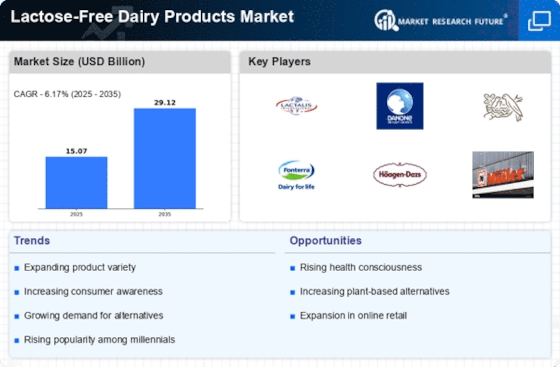


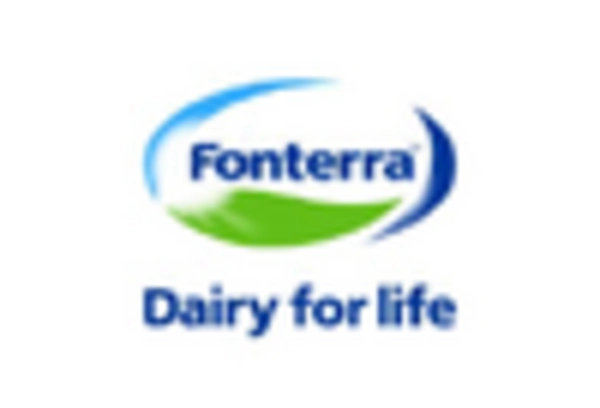
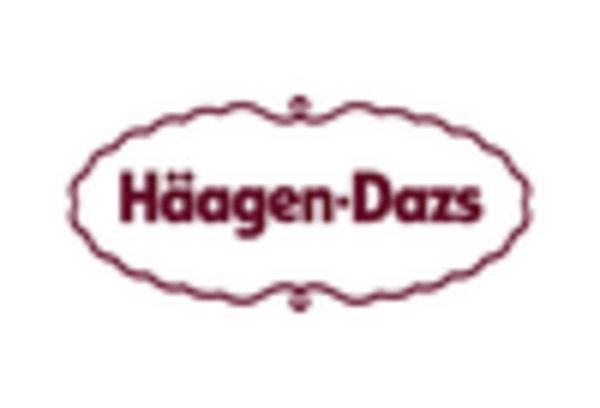
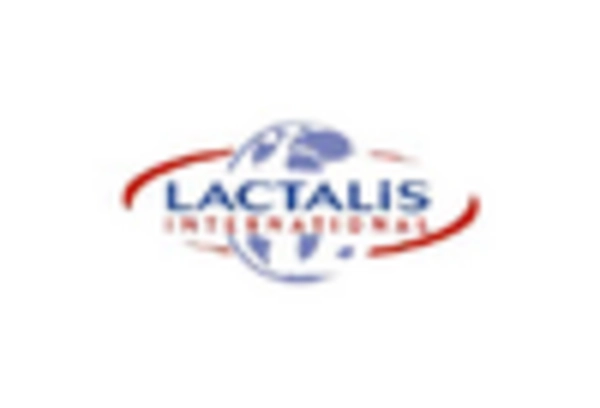
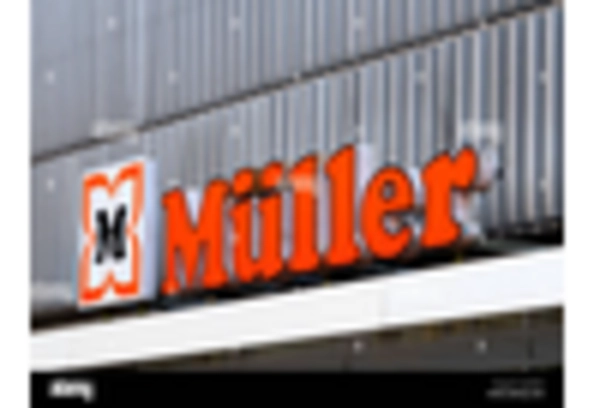


Leave a Comment